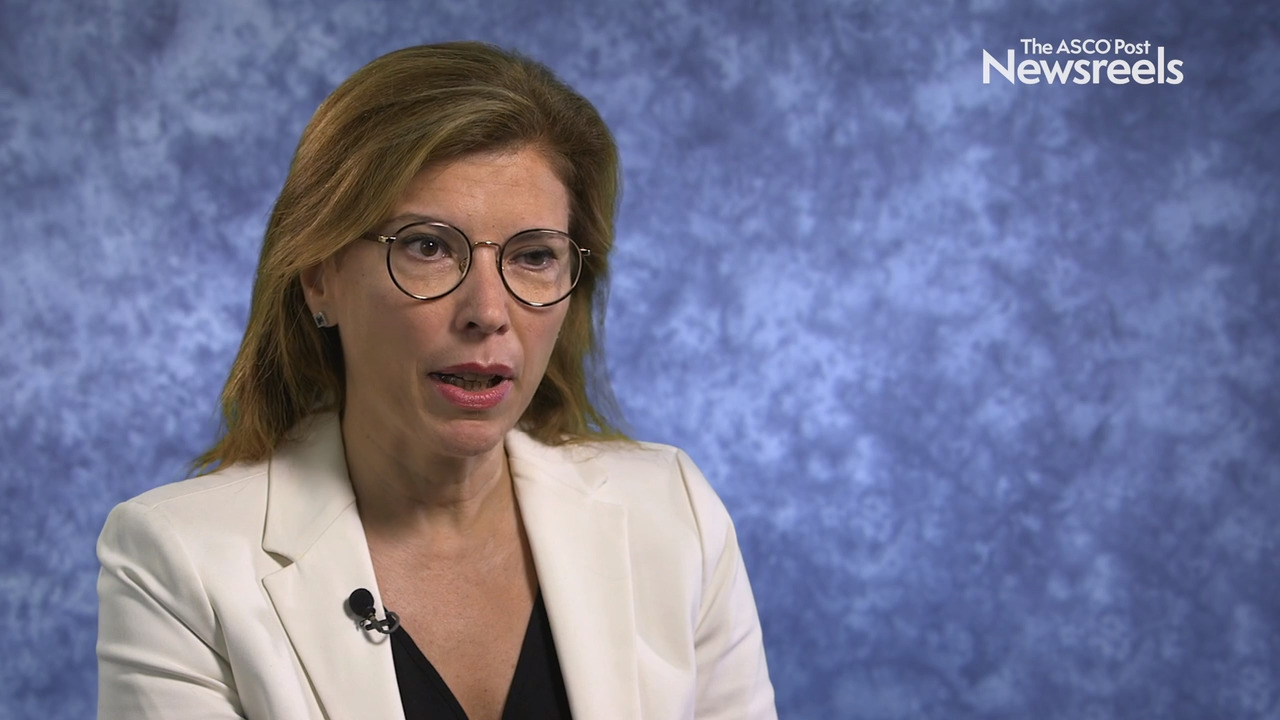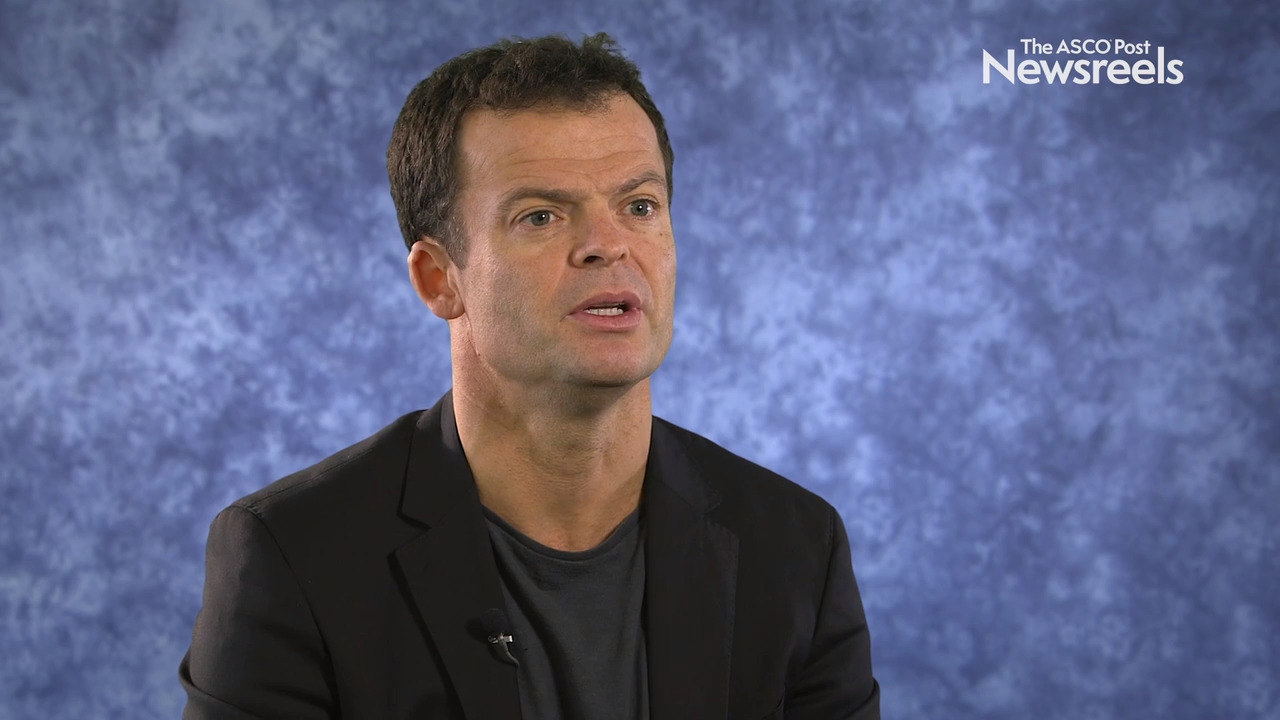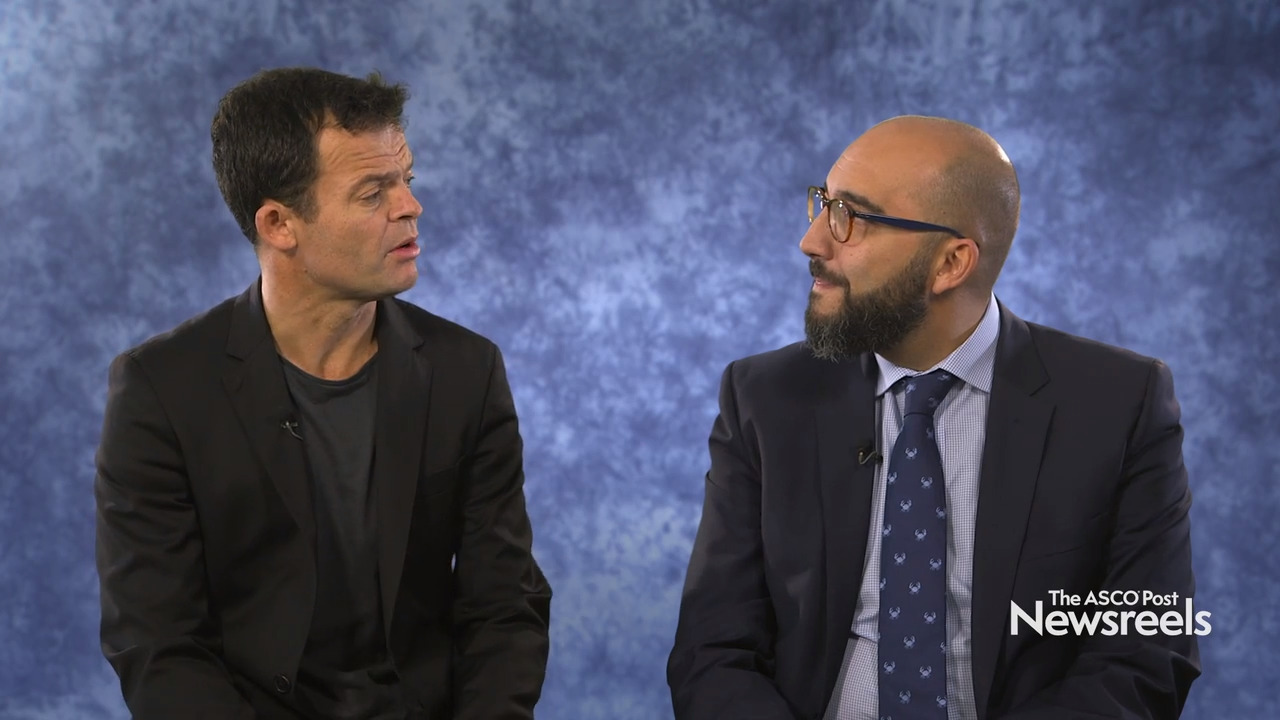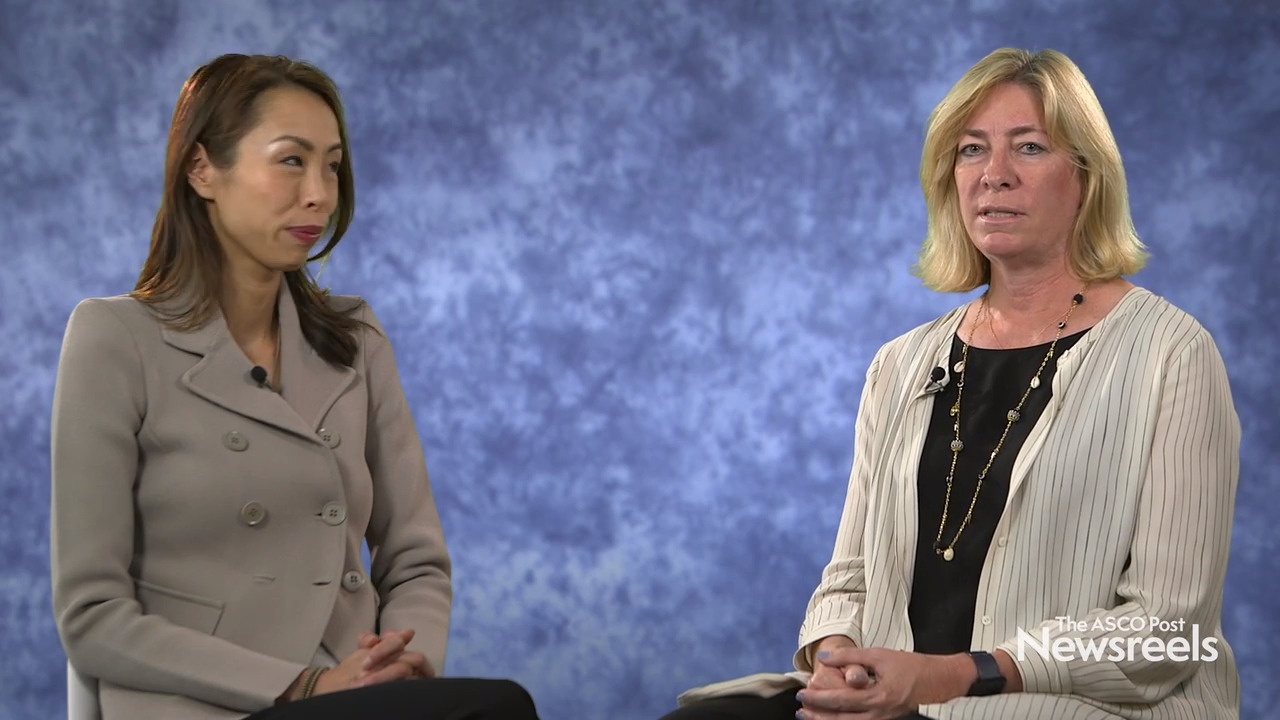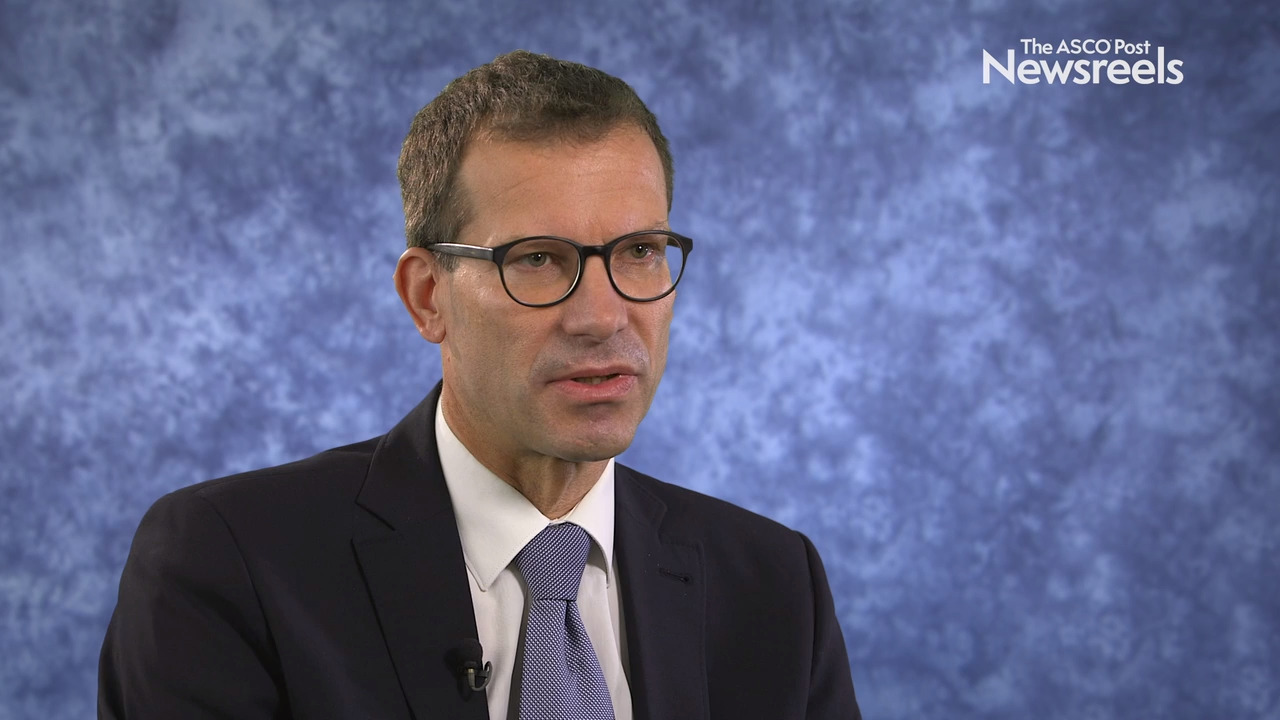Georgina V. Long, MD, PhD, on Melanoma Brain Metastases: Nivolumab Alone or Nivolumab/Ipilimumab
ESMO 2019 Congress
Georgina V. Long, MD, PhD, of the Melanoma Institute Australia, The University of Sydney, discusses long-term outcomes from a phase II trial which showed that nivolumab/ipilimumab therapy demonstrated durable intracranial responses in patients with melanoma brain metastases. No new adverse events were reported (Abstract 1311O).
Ana Maria Arance Fernandez, MD, PhD, of the Hospital Clínic de Barcelona, discusses the negative results of the phase III IMspire170 trial, which evaluated cobimetinib/atezolizumab vs pembrolizumab monotherapy in patients with BRAF V600 wild-type melanoma (Abstract LBA69).
Thomas Powles, MD, PhD, of Queen Mary University of London, discusses the first study to examine immunotherapy and targeted treatment combinations with a personalized approach in bladder cancer. FGF, TORC1/2, and PARP inhibitors were explored in combination with durvalumab in selected patients (Abstract 902O).
Thomas Powles, MD, PhD, of Queen Mary University of London, and Enrique Grande, MD, PhD, of MD Anderson Cancer Center, Madrid, discuss findings of the phase III IMvigor130 trial on the efficacy and safety of atezolizumab as monotherapy or combined with platinum-based chemotherapy vs placebo plus platinum-based chemotherapy in previously untreated locally advanced or metastatic urothelial carcinoma (Abstract LBA14).
Sherene Loi, MD, PhD, of Peter MacCallum Cancer Centre at the University of Melbourne, and Leisha A. Emens, MD, PhD, of UPMC Hillman Cancer Center, discuss overall survival in this phase II study of atezolizumab/trastuzumab emtansine (T-DM1) vs placebo/T-DM1 in previously treated HER2-positive advanced breast cancer (Abstract 305O).
Volker Kunzmann, MD, of the University of Würzburg/Comprehensive Cancer Center Mainfranken, discusses the final results of a phase II multicenter trial on the conversion rate in locally advanced pancreatic cancer after nab-paclitaxel/gemcitabine- or FOLFIRINOX-based induction chemotherapy (Abstract 671O).
